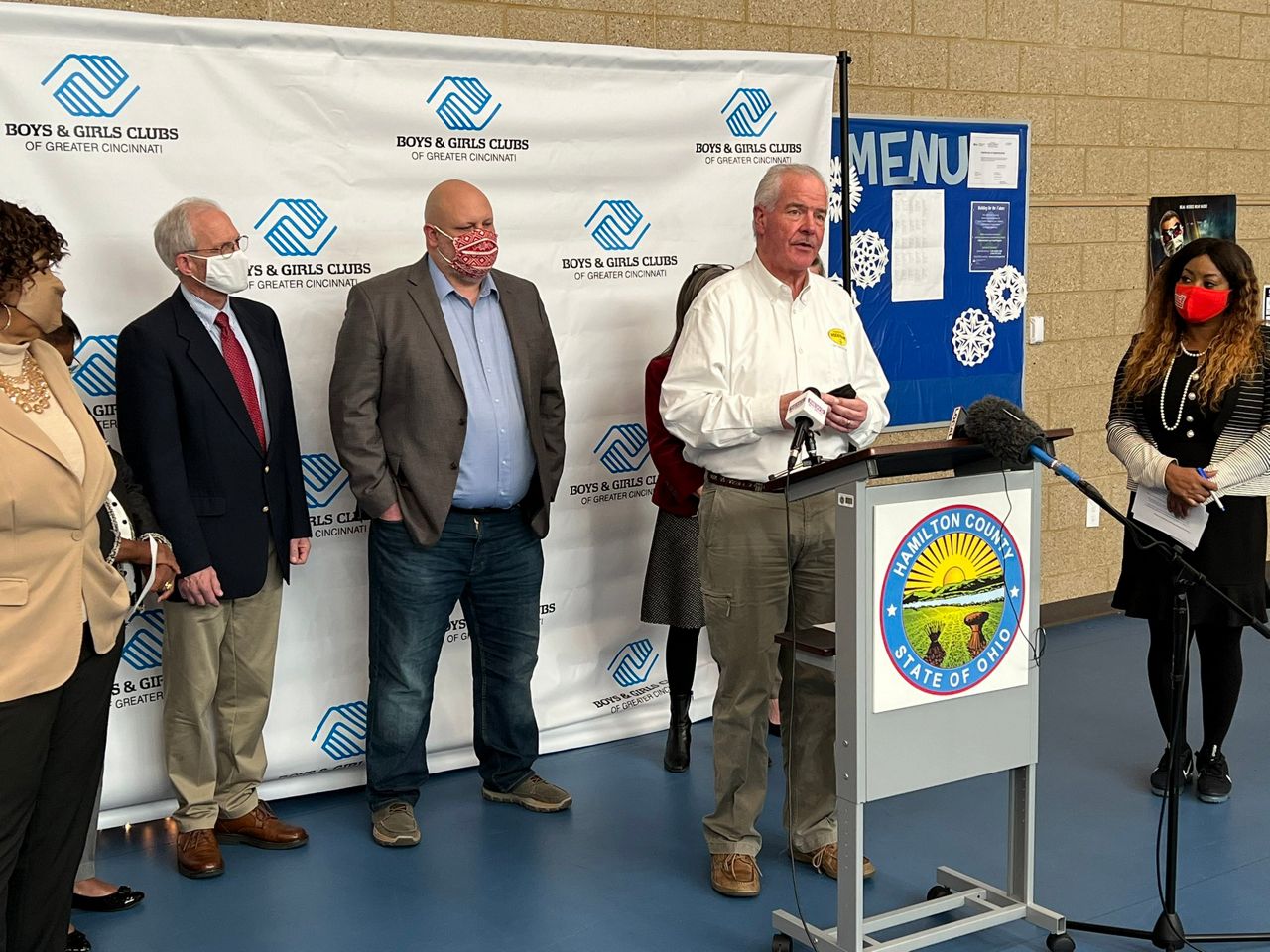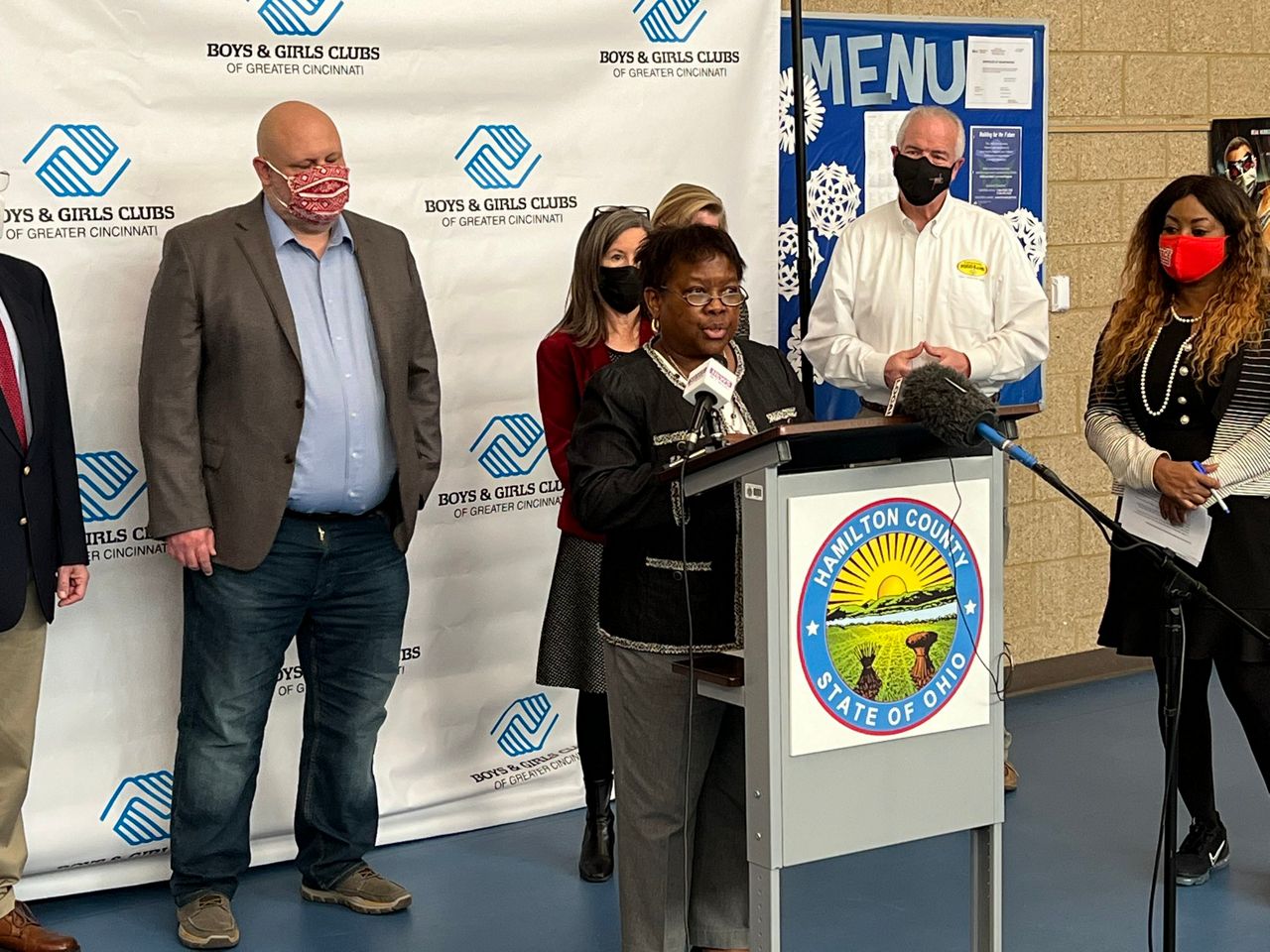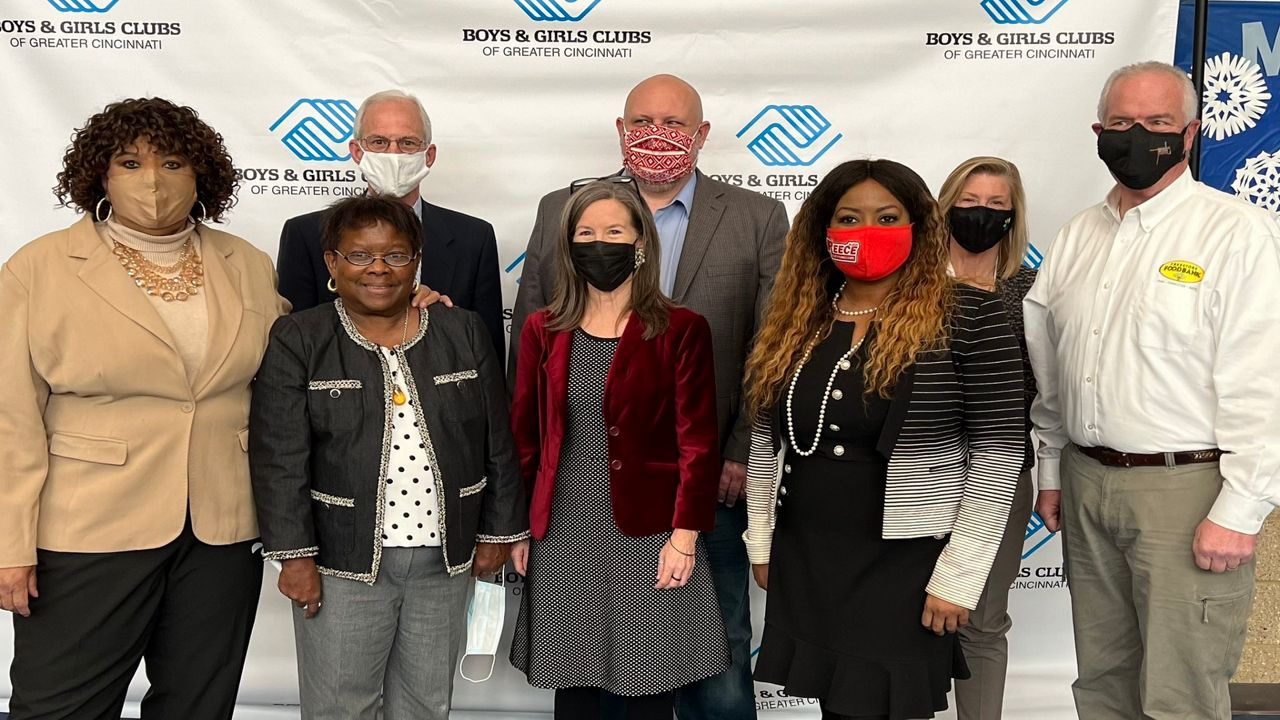CINCINNATI — To support the “backbone of our social services safety net,” Hamilton County will distribute an additional $6.3 million in grant dollars to local nonprofits impacted by the ongoing COVID-19 pandemic.
What You Need To Know
- Hamilton County is offering a second round of grant funding to local nonprofits
- Grant awards will range from $25,000 to $250,000
- The funding comes from federal recovery money
- Hamilton County commissioners said the money is key to keeping social services available to residents in need
The Hamilton County Commissioners announced details of the expanded grant program Tuesday morning at Larry & Rhonda Sheakley Club, one of several Boys & Girls Club of Greater Cincinnati sites in Hamilton County.
Grants can range from between $25,000 to a max of $250,000.
"It’s a substantial amount that aims to help (service providers) continue the work they’re doing but also increase, in some cases, the work they’re doing to serve members of our community," said Hamilton County Commissioner Denise Driehaus.
Grants will be available to support agencies that provide all sorts of programs — senior services, mental health resources, addiction clinics, food pantries, homeless shelters, or helping people with disabilities. Many of the organizations focus on working with families and children, such as the Boys & Girls Club.
The United Way of Greater Cincinnati will handle the administration of the grant.

Driehaus said nonprofits are vital to communities during the best of times. But "during this hard time," they're as important as ever. Driehaus called these agencies the “front lines of this pandemic” and the people aiding "our most vulnerable populations."
Kurt Reiber, CEO of the Freestore Foodbank, said his organization received funds during the first round of the grant program. He called that money "transformational."
Reiber said right now 75% of the people Freestore Bank serves through its network hadn't stepped foot inside one of their facilities prior to the start of COVID-19.
"This is a marathon, not a sprint. We are working hard to put additional resources in the hands of those in need to help them stabilize. But we can't do it without the safety net of this great community," he added.
Commission President Stephanie Summerow Dumas stated that nonprofits have "vision to help the public and give back to society." While they’re not focused on money or profits, they need funds to pay for operations and staff. She said financial hardships caused by COVID-19 have affected the ability to fundraise in many instances.
Summerow Dumas said the current situation in Kentucky highlights the important work of nonprofits.
“As we watch recovery efforts in Kentucky, we see the nonprofits on the front lines. When the pandemic started, nonprofits were the first out of the gate ensuring our neighbors were taken care of, from getting meals to homelessness previously," she said. "We saw nonprofits step up even when their fundraisers were canceled and community needs increased substantially."
The money to support the grants come from Hamilton County's share of the American Rescue Plan funding it received from the federal government earlier this year. The county commissioners voted to set aside the more than $6 million specifically for this program.

This is the second round of such funding from Hamilton County, but the money is coming from a different source this time.
In 2020, Hamilton County used federal CARES Act funding to award 58 nonprofits a total of $4.5 million to keep vital human services flowing into the community. They also provided Youth Services Grants totaling $1 million and three grants aimed at domestic violence reduction for a total of $200,000.
Commissioner Alicia Reece said in addition to providing valuable resources, oftentimes, nonprofits can provide services quicker than the government because they can “cut through the red tape and get services to the people right away.”
Leaders from the Boys & Girls Club were in attendance for the media events. Other nonprofits represented included the Freestore Foodbank, Families Forward and Santa Maria Community Services.
Each of those organizations received funding during a first round of nonprofit last year. Any agency that received a grant during the first round is eligible for Round 2 as well.
During the last round, Families Forward — a neighborhood-based resource center for schools, students and their families — received funding to help them develop new types of programming to address needs brought about by the pandemic.
Some had more obviously connections to their stated mission, like helping students adapt to remote and at-home learning. But others were more unique. Families Forward has expanded at-home food delivery and they now also perform mental health check-ins for families, according to Deborah Mariner Allsop, the organization's CEO.
Allsop said last time the funds went to helping about 200 families. Additional funds they plan to apply for would increase that number to 600, she said.
"(Mental health) is a big gap (area) in our community that COVID has created. It's our job to keep kids engaged in this critical hour," she said.
Reece said Hamilton County wants to make sure that organizations know these funds are available to all nonprofits, not just the bigger names. Smaller nonprofits and more niche service providers may be eligible as well.
How it works
To receive funds, a nonprofit must be organized as a 501(c)3 and located in Hamilton County and serve county residents. Driehaus acknowledged that “no one is checking IDs” for who’s receiving the services, but the goal is to benefit residents of Hamilton County.
Nonprofits must have opened prior to March 2019, which is around the start of the pandemic. They must also show proof that their operations were impacted by COVID-19.
Driehaus said that could mean they’ve had their funding cut as a result of the pandemic, or the need for their services has been on a rise in recent months due to it.
Hamilton County has contracted with the United Way of Greater Cincinnati to administer this round of the nonprofit grants. They’ll do so in two phases – those experiencing financial hardships and those receiving an uptick in need.
Applications for nonprofits that can demonstrate a revenue loss due to the pandemic will go live Dec. 30. The second phase is Jan. 10 for nonprofits that've seen the need for their services increase.
The United Way set up a program website, which went live Wednesday. It has a self-assessment tool to help prospective applicants determine their eligibility.
You can find out more on the United Way of Greater Cincinnati website or on Hamilton County’s COVID resources page, 513 Relief.
